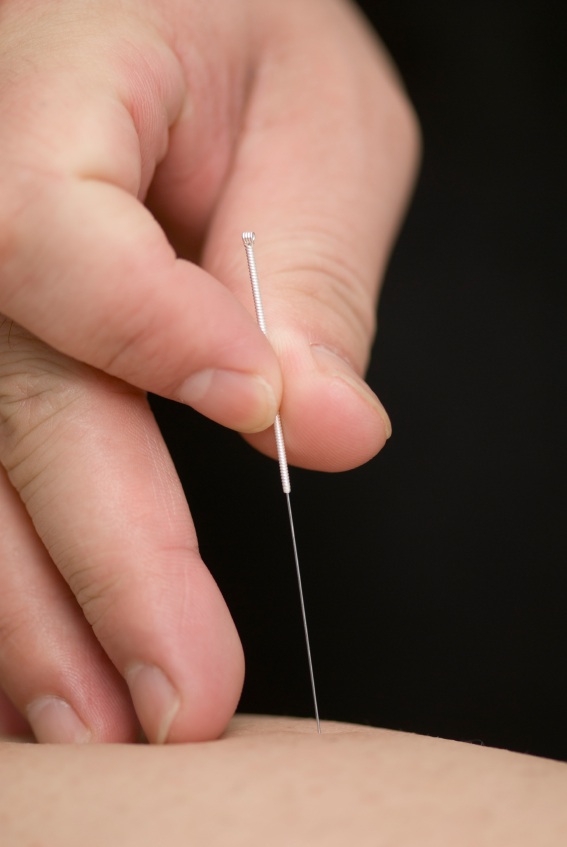Myofascial pain syndromes are a large and diverse group of painful conditions that occur in the musculoskeletal system. They affect muscles and their connective tissue attachments. They are named according to the location of the painful area. Common examples include lateral epicondylitis and achilles tendonitis. Myofascial pain syndromes are unique in that they typically arise and persist in the absence of any detectable injury or inflammation.
What is a myofascial trigger point (MTP) ? Heguenin defines a MTP as a the presence of exquisite tender nodule in a palpable band of muscle. They produce referred pain either spontaneously or with compression.
What is intramuscular stimulation (IMS). It involves the use of small acupuncture like needles to deactivate trigger points and loosen tight (shortened) muscles.

Gunn MD contends that long term pain relief requires treatment at the affected spinal level to reduce nerve root compression as well as treatment of peripheral trigger points.
Sources of MTP? Unclear, however Chan Gunn MD advocated that neural injury or compression at a specific spinal level results in abnormal activity in the peripheral nerve. The goal of IMS is to release muscle shortening, promote healing and decrease spontanesous electrical activity at the trigger points.
So if you are snowboarding and catch an edge and find yourself face planted, you may have injured your C5.6 disc. It may be a transient pain but the injurymay have resulted in an irritation of the C6 nerve root. You may not have neck pain or shooting pain down the arm typcial of a C6 nerve root irriation. More commonly you will have pain in the muscles of the rotator cuff, the rhomboids, latissimus dorsi, biceps and triceps all of which are innervated by the C6 nerve root. At the Centeno-Schultz Clinic we understand the importance of treating both the affected spinal level as well as the peripheral trigger points. Long term success requires treatment of both.